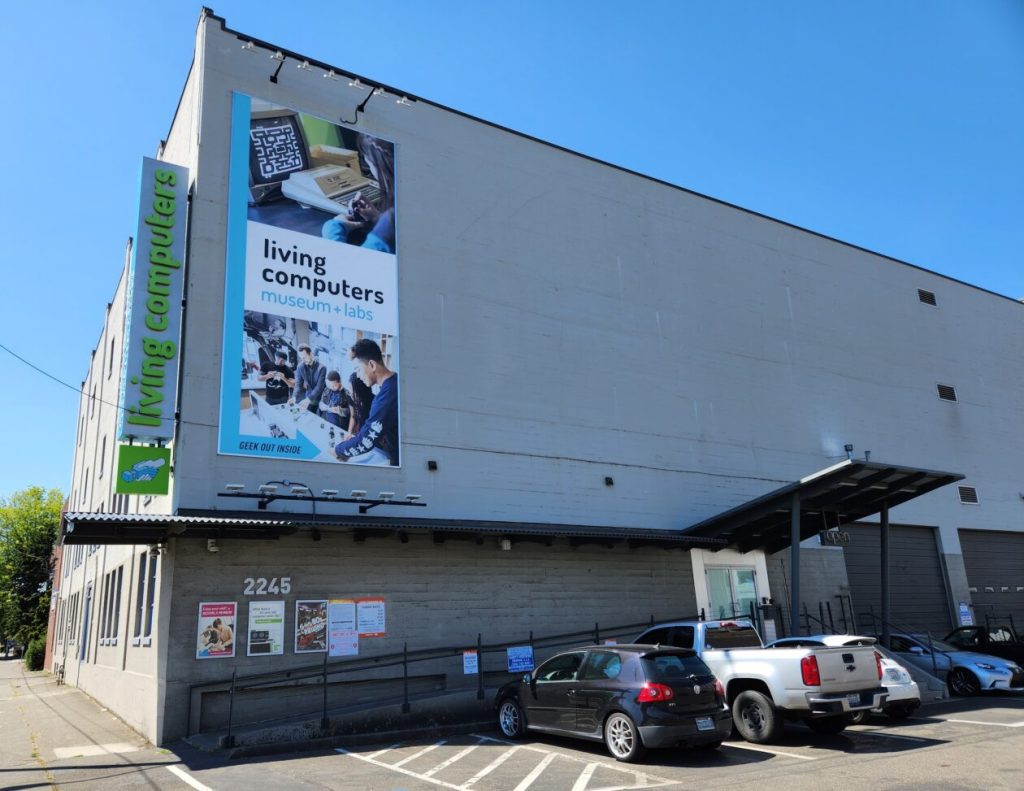Living Computers: Museum + Labs in Seattle closed in 2020 just before the pandemic and did not reopen. The Paul Allen estate announced that it has sold the remaining artifacts and educational materials to the Computer Museum of America in Atlanta. Terms of the acquisition were not disclosed, but the proceeds from the sale will be donated to charity as per Allen’s wishes. Located south of downtown Seattle, Living Computers housed a large collection of rare computers and technology, including supercomputers, mainframes, minicomputers, and microcomputers.
Computer Museum of America, located in Roswell, Georgia just north of Atlanta, will now carry on the legacy of the former Living Computers Museum. The museum, founded by Lonnie Mimms, features 34,000 square feet of exhibit space, event space, classrooms, and storage. The museum is currently housed in a two-story building with plans to develop the second floor. It will take some time before items from Living Computers are integrated into CMoA’s displays due to the huge effort required to organize, catalog, and store the artifacts.
Although Atlanta may seem like a far-off destination, CMoA is proud to continue Paul Allen’s passion for the history of computing. The city of Atlanta is known for its tech and innovation environment, often referred to as the “Silicon Valley of the South.” Microsoft also has a significant presence in the area. The move of the Living Computers artifacts to CMoA will ensure that the history of computing continues to inform and educate future generations of museum patrons.
The decision to sell the remaining artifacts from Living Computers Museum to CMoA has created a sense of loss in the Seattle area. Fans of the museum expressed regret that LCM could not be saved and questioned why Allen made no plans for its continuation after his passing. Leonard Garfield, executive director of Seattle’s Museum of History and Industry, emphasized the importance of preserving the history of the tech industry in Seattle. While some items have been auctioned, the collection headed to Atlanta will continue to inform and showcase the history of computing.
The items from Living Computers Museum will now be in the hands of the Computer Museum of America in Atlanta. The executive director of CMoA, Rena Youngblood, assured that the artifacts will be taken care of and valued, ensuring that the technology and innovators behind them are respected. The move of the collection to Atlanta marks the end of an era for the Seattle region, where LCM played a significant role in sharing the story of the tech industry and the legacy of leaders like Paul Allen. Despite the loss to the Seattle community, the artifacts will continue to be celebrated and preserved for future generations to appreciate.


